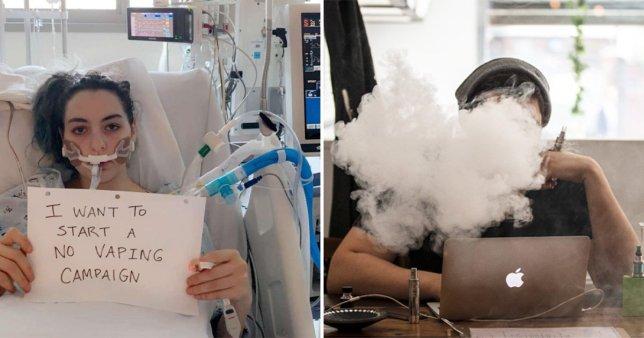It is no secret that vaping in the United States has become a serious health issue among young adults and teenagers in the past few years. On September 11th, President Trump and White House officials met to stop the spread of vaping-related illnesses.
The multi-billion dollar e-cigarette company Juul takes up approximately 75% of the e-cigarette market in the United States. While Juul has claimed consistently that their products are marketed towards helping adults quit cigarette addiction, most of their consumers are young adults and teenagers due to the popular vape flavors Juul offers.
San Francisco was the first U.S. city to take action against Juul and e-cigarettes by banning the products from being sold. But Juul is facing lawsuits and a lot of pressure from organizations, politicians, and government nationwide; such as the FDA demanding that Juul provide evidence that their products are healthier than “conventional cigarettes,” which is one of their main marketing points for the product.
Many people are developing mysterious lung illnesses that are linked to vaping, but the specific cause of all these illnesses is still unknown. According to the CDC, six people have died due to vaping illnesses and 380 confirmed vaping-related illnesses have been identified across the U.S. and U.S. Virgin Islands.
While all of this is not a surprise, there has also been a rise in the use of marijuana-vaping products over the past few years. Many people turn to the use of “wax cartridges,” which are marijuana flower and THC concentrate substances that can be smoked through vaporizers. It is a discreet and healthier way to consume marijuana which is why it is favorable to many marijuana-users.
Many young adults are not aware of what they are consuming or what ingredients come in these wax/marijuana cartridges, which is why there are fake THC cartridges being sold nationwide. Packing of popular weed brands are sold online for sellers to purchase and fill with any type of e-liquid, and they can easily market it as “marijuana” although it’s actually unregulated mysterious chemicals.
Although there isn’t a pinpoint exact cause for vaping-related illnesses, chemists and scientists are sure that it has something to do with chemical exposure from inhaling the oils to the lungs. Many of these oils are also put into fake weed products, or can even be in the products that’s legally sold in dispensaries.
The flavoring in pens are synthetic chemicals known as proplyene glycol and polyethelyne glycol, which can exacerbate asthma and allergies according to a 2010 study. Along with inhaling these chemicals, many vape pens have a heating feature, but the higher temperature that the e-liquids are consumed at, the more chemicals are released into your lungs.
Amid all of these health concerns, many people aren’t phased by it. Marijuana users favor these wax pens because they are able to self-medicate discreetly and without burning actual flower; and smokers with cigarette addictions are able to cut down on their nicotine intake.
Although the Trump administration cutting the sales of flavored Juul products will help to stop teenagers from using them, there are many other brands on the market that people will or can turn to.
While it is the duty of these e-cigarette brands and the government to regulate healthy products, millennials and young teenagers alike should be more cautious about what they are consuming and take into account the mysterious illnesses people around them are contracting.



































